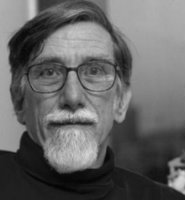
Robert Jervis is the Adlai E. Stevenson Professor of International Affairs at Columbia University. He is a coeditor of the Security Studies Series published by Cornell University Press, serves on the board of nine scholarly journals, and has authored over 100 publications. Dr. Jervis is a fellow of the American Association for the Advancement of Science and the American Academy of Arts and Sciences. He has also served a [ ... ]
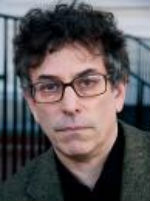
Bruce Shapiro is executive director of the Dart Center for Journalism and Trauma, encouraging innovative reporting on violence, conflict and tragedy worldwide from the Center’s headquarters at Columbia University in New York City. An award-winning reporter on human rights, criminal justice and politics, Shapiro is a contributing editor at The Nation and U.S. correspondent for Late Night Live on the Australian Broadc [ ... ]

Sheila began her reporting career in 1982, when she joined the staff of Philippine Panorama, a widely read magazine. As Ferdinand Marcos gradually lost political power, Sheila reported on human rights abuses, the growing democratic movement, and the election of Corazon Aquino as president. She later joined the staff of The Manila Times as a political reporter, and also wrote special reports for The Manila Chronicle. As a [ ... ]

Matthew Connelly, professor, works on the history of eugenics, migration, and birth control. His most recent book, Fatal Misconception: The Struggle to Control World Population, has just been published by Harvard University Press. His research articles have appeared in such journals as Population and Development Review, Comparative Studies in Society and History, The International Journal of Middle East Studies, The Ameri [ ... ]

Dean Steve Coll is a staff writer at The New Yorker, the author of seven books of nonfiction, and a two-time winner of the Pulitzer Prize. Between 1985 and 2005, he was a reporter, foreign correspondent and senior editor at the Washington Post. There he covered Wall Street, served as the paper’s South Asia correspondent, and was the Post’s first international investigative correspondent, based in London. Over [ ... ]
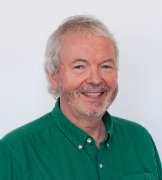
John Broughton is an Associate Professor of Psychology and Education within the Department of Arts and Humanities at Teachers College. He was the co-founder of the Film and Education Research Center with Kelvin Shawn Sealey. Professor Broughton's scholary interests include: Cultural Studies, trauma, violence, illness/disability, masculinity, military technologies, youth subcultures, and cinema as educator.&nb [ ... ]
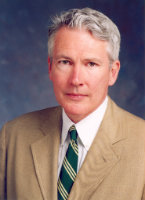
One of the nation's leading constitutional theorists, Professor Bobbitt's interests include not only constitutional law but also international security and the history of strategy. Bobbitt is a Fellow of the American Academy of Arts and Sciences. He is also a Fellow of the Club of Madrid. He is a Life Member of the American Law Institute, and a member of the Council on Foreign Relations, the Pacific Council on Internation [ ... ]
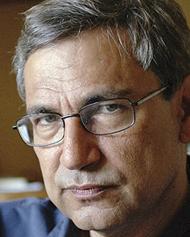
Orhan Pamuk is one of Turkey's most prominent novelists. Titles (in English) include "The White Castle," "The Black Book," "The New Life," "My Name is Red," "Snow," "Isbanbul: Memories of a City," "Other Colors: Essays and a Story" and his newest book, "The Museum of Innocence." His work has been trnaslated into more than 40 languages and he h [ ... ]
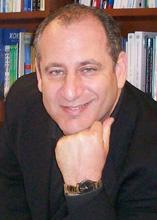
David L. Phillips is currently Director of the Program on Peace-building and Rights at Columbia University’s Institute for the Study of Human Rights. Phillips has worked as a senior adviser to the United Nations Secretariat and as a foreign affairs expert and senior adviser to the U.S. Department of State. He has held positions as a visiting scholar at Harvard University’s Center for Middle East Studies, [ ... ]
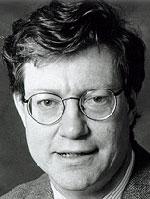
Richard M. Pious, professor of political science and Adolph S. and Effie Ochs Chair in History and American Studies, taught at Columbia College from 1968 through 1972, and joined the Barnard faculty in 1973. He also taught at York University, Toronto. Professor Pious's teaching includes courses on American politics, constitutional and public law, and political decision making. Professor Pious has written widely on A [ ... ]

Lawrence G. Potter teaching interests include the history of Iran, Afghanistan and the Persian Gulf, and U.S. policy toward the Middle East. Potter has taught at Columbia University since 1996 and has served as adjunct associate professor of International Affairs since 2002. He has also served as deputy director of the SIPA'sGulf/2000 Project since 1994. Potter has edited The Persian Gulf in History (2009), and co-edited [ ... ]

Jonathan Rieder joined the faculty of Barnard College in 1990 and chaired the department from 1990 through 2003. He previously taught at Yale University and Swarthmore College. In addition to his teaching in the Sociology Department, Professor Rieder is affiliated with Barnard's programs in American Studies, Jewish Studies, and Human Rights Studies. A member of the graduate faculty of Columbia University’s Sociology [ ... ]
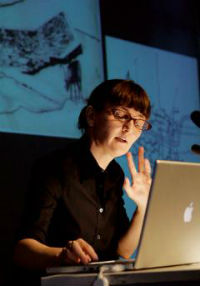
Felicity D. Scott is assistant professor of architecture and director of the program in Critical, Curatorial and Conceptual Practices in Architecture (CCCP) at the Graduate School of Architecture, Planning and Preservation, Columbia University. She is also a founding co-editor of Grey Room, a quarterly journal of architecture, art, media, and politics published quarterly by MIT Press since Fall 2000. Her work as an archit [ ... ]
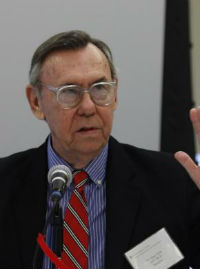
Gary Sick is a senior research scholar at Columbia University’s Middle East Institute and an adjunct professor at the School of International and Public Affairs. He served on the National Security Council under Presidents Ford, Carter, and Reagan. He was the principal White House aide for Iran during the Iranian Revolution and the hostage crisis. Sick is a captain (ret.) in the U.S. Navy, with service in the Pe [ ... ]

Mitch is the Executive Managing Director for Intelligence and Analytic Solutions at K2 Intelligence in New York, where he leads K2’s Data Analytics practice. Before joining K2, Mitch served as Director of Intelligence Analysis at the New York Police Department’s Intelligence Division. There, he supervised the Department’s entire portfolio of ongoing terrorism-related investigations and ma [ ... ]
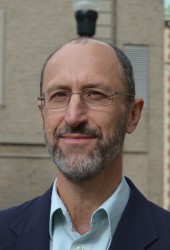
Jack Snyder (Ph.D., Columbia, 1981) is the Robert and Renee Belfer Professor of International Relations in the Department of Political Science and the Saltzman Institute of War and Peace Studies at Columbia. His books include Electing to Fight: Why Emerging Democracies Go to War, co-authored with Edward D. Mansfield; From Voting to Violence: Democratization and Nationalist Conflict; Myths of Empire: Domestic Politics [ ... ]

I began fieldwork in 1969. I have returned every year. My writing has spanned different things in roughly the following order; two books in Spanish for local people on the history of slavery and its aftermath, and books and articles in academic journals on the: 1) commercialization of peasant agriculture, 2) slavery, 3) hunger, 4) the popular manifestations of the working of commodity fetishism, 5) the impact of col [ ... ]
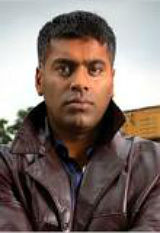
Sudhir Venkatesh is William B. Ransford Professor of Sociology, and the Committee on Global Thought, at Columbia University in the City of New York. His most recent book is Gang Leader for a Day(Penguin Press). Gang Leader received a Best Book award from The Economist, and is currently being translated into Chinese, Korean, Japanese, German, Italian, Polish, French and Portuguese. His previous work, Off the Books: The Und [ ... ]